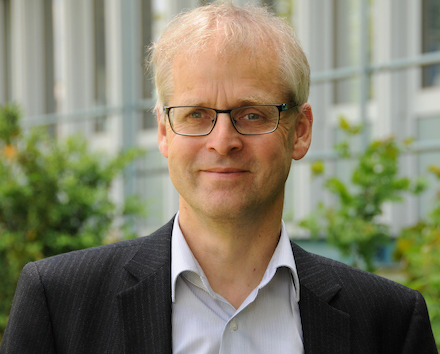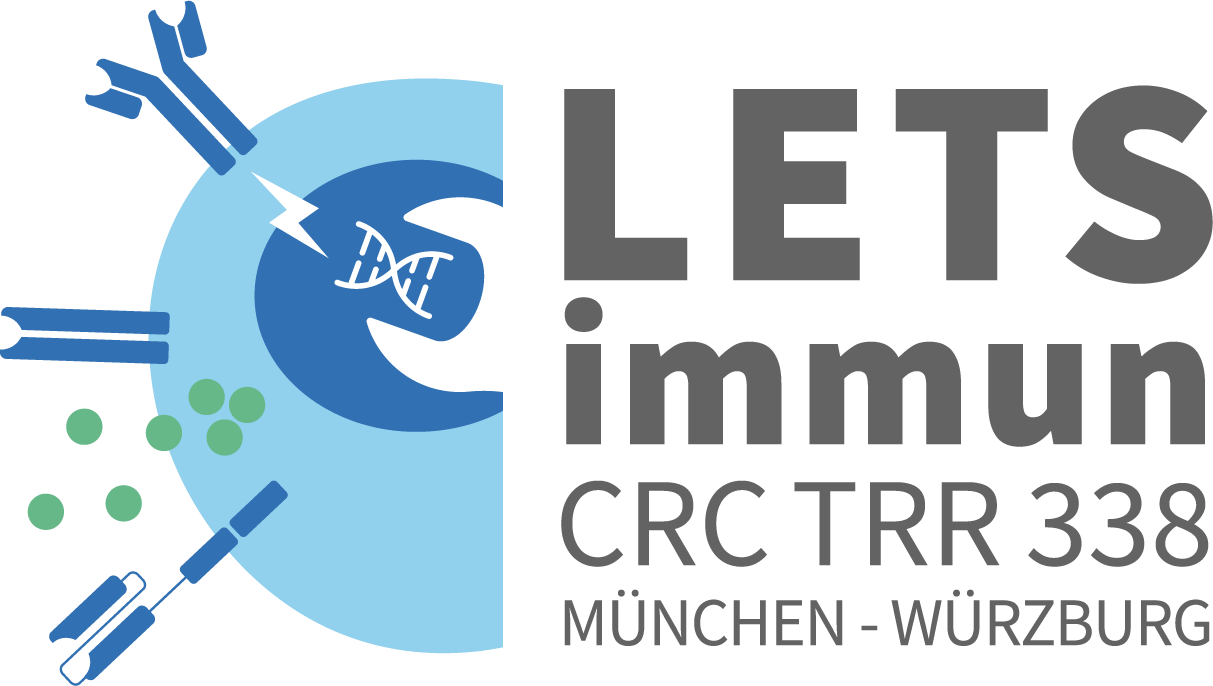
Prof. Dr. phil. Martin Eilers
Biozentrum der Universität Würzburg, Lehrstuhl für Biochemie & Molekularbiologie
Julius-Maximilians-Universität Würzburg
Am Hubland
97074 Würzburg
Phone: +49 931 31 84111
Email: martin.eilers@biozentrum.uni-wuerzburg.de
University training and degree
1978 – 1984 Biochemistry , Münster, Tübingen, Edinburgh, Diploma Thesis „Expression Cloning with Monoclonal Antibodies” Max Planck Institute Tübingen, Dr. Bonhoeffer
Advanced academic qualifications
1995 Habilitation: Biochemistry, University of Heidelberg,
1988 Doctorate: Biochemistry, University of Basel, 1988, Prof. Dr. Gottfried Schatz
Postgraduate professional career
Since 2008 Professor of Biochemistry and Molecular Biology (W3), Biocenter University of Würzburg, Germany
2001 – 2008 Professor of Molecular Biology (C4); University of Marburg, Germany
1997 – 2001 Associate Professor of Molecular Biology (C3); University of Marburg, Germany
1991 – 1996 Research group leader, ZMBH, University of Heidelberg, Germany
1988 – 1990 Postdoctoral Fellowship of the “Deutscher Akademischer Austauschdienst” (German Acade mic Exchange Service)
1988 – 1990 Postdoctoral Fellow, University of California, San Francisco (UCSF)
1978 – 1984 Fellow of the “Studienstiftung des Deutschen Volkes”
(German National Academic Foundation)
2016 Member National Academy of Sciences Leopoldina
2014 ERC Advanced Grant 2014 “AUROMYC”
2006 EMBO Member
2004 German Cancer Award
1995 Hess-Award of the Deutsche Forschungsgemeinschaft
1988 Amerbach-Award of the University of Basel
2017 – 2018 Chair Advisory Committee Deutsche Krebshilfe (German Cancer Aid)
2017 – 2019 Member ERC Advanced Grant Panel
Since 2009 Research Director Comprehensive Cancer Center Mainfranken, University of Würzburg, Germany
Since 2009 Section Speaker “Biomedicine” of Graduate School of Life Science, University of Würzburg, Germany (a DFG funded Center of Excellences)
a) Articles published by outlets with scientific quality assurance, book publications and works accepted for publication, but not yet published
1. Herold S, Kalb J, Büchel G, Ade CP, Baluapuri A, Xu J, Koster J, Solvie D, Carstensen A, Klotz C, Rodewald S, Schülein-Völk C, Dobbelstein M, Wolf E, Molenaar J, Versteeg R, Walz S and Eilers M (2019). “Recruitment of BRCA1 limits MYCN-driven accumulation of stalled RNA Polymerase.” Nature (in press).
2. Buchel G, Carstensen A, Mak KY, Roeschert I, Leen E, Sumara O, Hofstetter J, Herold S, Kalb J, Baluapuri A, Poon E, Kwok C, Chesler L, Maric HM, Rickman DS, Wolf E, Bayliss R, Walz S, Eilers M (2017) Association with Aurora-A Controls N-MYC-Dependent Promoter Escape and Pause Release of RNA Polymerase II during the Cell Cycle. Cell Rep 21: 3483-3497
3. Dejure FR, Royla N, Herold S, Kalb J, Walz S, Ade CP, Mastrobuoni G, Vanselow J, Schlosser A, Wolf E, Kempa S, and Eilers M (2017) The 3’-UTR of MYC couples RNA polymerase II function to ribonucleotide levels. EMBO J. Jul 3;36(13):1854-1868. doi: 10.15252/embj.201796662. Epub 2017 Apr 13.
4. Casey SC, Tong L, Li Y, Do R, Walz S, Fitzgerald KN, Gouw AM, Baylot V, Gutgemann I, Eilers M, Felsher DW (2016) MYC regulates the antitumor immune response through CD47 and PD-L1. Science 352: 227-31
5. von Eyss B, Jaenicke LA, Kortlever RM, Royla N, Wiese, KE, Letschert L, McDuffus LA, Sauer M, Rosenwald A, Evan GI, Kempa S, and Eilers M (2015) A MYC-driven change in mitochondrial dynamics limits YAP/TAZ function in mammary epithelial cells and breast cancer. Cancer Cell, 28:743-57.
6. Walz S, Lorenzin F, Morton J, Wiese KE, von Eyss B, Herold S, Rycak L, Dumay-Odelot H, Karim S, Bartkuhn M, Roels F, Wustefeld T, Fischer M, Teichmann M, Zender L, Wei C-L, Sansom O, Wolf E, Eilers M (2014) Activation and repression by oncogenic MYC shape tumour-specific gene expression profiles. Nature 511: 483-487
7. Brockmann M, Poon E, Berry T, Carstensen A, Deubzer HE, Rycak L, Jamin Y, Thway K, Robinson SP, Roels F, Witt O, Fischer M, Chesler L, Eilers M (2013) Small molecule inhibitors of aurora-a induce proteasomal degradation of N-myc in childhood neuroblastoma. Cancer Cell 24: 75-89
8. Liu L, Ulbrich J, Muller J, Wustefeld T, Aeberhard L, Kress TR, Muthalagu N, Rycak L, Rudalska R, Moll R, Kempa S, Zender L, Eilers M*, Murphy DJ* (2012) Deregulated MYC expression induces dependence upon AMPK-related kinase 5. Nature 483: 608-612 *corresponding authors
9. Kress TR, Cannell IG, Brenkman AB, Samans B, Gaestel M, Roepman P, Burgering BM, Bushell M, Rosenwald A, Eilers M (2011) The MK5/PRAK kinase and Myc form a negative feedback loop that is disrupted during colorectal tumorigenesis. Mol Cell 41: 445-457
10. Popov N, Schulein C, Jaenicke LA, Eilers M (2010) Ubiquitylation of the amino terminus of Myc by SCF(beta-TrCP) antagonizes SCF(Fbw7)-mediated turnover. Nat Cell Biol 12: 973-981
